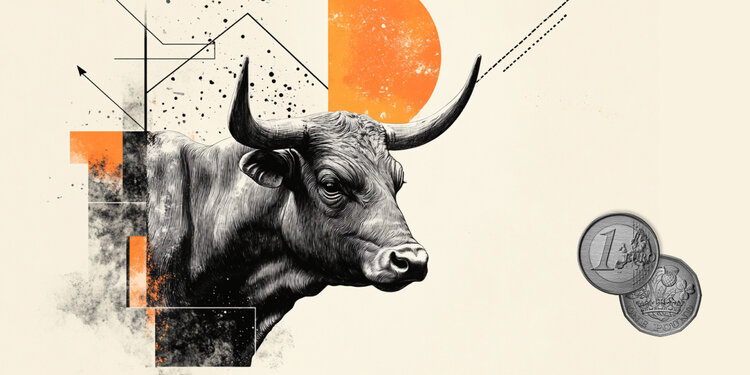
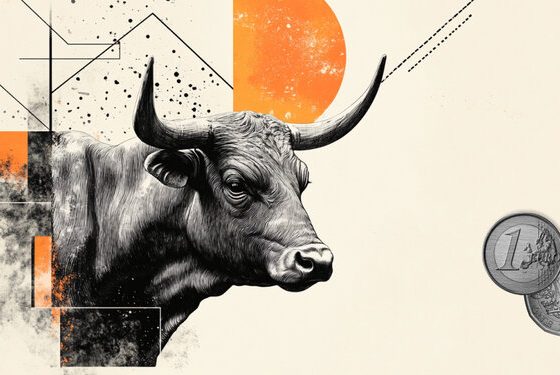
others
EUR/GBP posts modest gain above 0.8600 ahead of German inflation data – Crypto News
- EUR/GBP trades in positive territory around 0.8625 in Thursday’s early European session.
- EU hopes to agree to a US tariff deal ‘in coming days.’
- The UK monthly GDP report will be published on Friday.
The EUR/GBP cross trades with mild gains near 0.8625 during the early European session on Thursday. Optimism around the United States (US)-European Union (EU) deal underpins the Euro (EUR). The German June inflation data will be released later on Thursday. On Friday, the attention will shift to the UK Gross Domestic Product (GDP) report.
The EU said that it hopes to agree to a US tariff deal “in the coming days” that would avoid import taxes Trump has threatened on its goods. Additionally, optimism that the White House will not target the bloc with additional tariffs and that it could secure some exceptions to the baseline rate of 10% might provide some support to the shared currency.
Trump said on Tuesday that the EU will “probably” receive a letter setting its new US tariff rate on Thursday, as the bloc had shifted from being “very tough” to “very nice.”
The Bank of England (BoE) Governor Andrew Bailey said earlier this month that “the path of interest rates will continue to be gradually downwards,” as the UK central bank juggles taming inflation and stoking elusive economic growth. Analysts expect the BoE to cut rates by 25 basis points (bps) at their next policy meeting in August, which would bring the interest rate to 4.0% from 4.25%.
The UK GDP report for May will be closely watched, which is expected to grow by 0.1% MoM in May from a contraction of 0.3% in the previous reading. In case of a stronger-than-expected outcome, this could reduce the chance of a BoE rate reduction, supporting the GBP.
Pound Sterling FAQs
The Pound Sterling (GBP) is the oldest currency in the world (886 AD) and the official currency of the United Kingdom. It is the fourth most traded unit for foreign exchange (FX) in the world, accounting for 12% of all transactions, averaging $630 billion a day, according to 2022 data.
Its key trading pairs are GBP/USD, also known as ‘Cable’, which accounts for 11% of FX, GBP/JPY, or the ‘Dragon’ as it is known by traders (3%), and EUR/GBP (2%). The Pound Sterling is issued by the Bank of England (BoE).
The single most important factor influencing the value of the Pound Sterling is monetary policy decided by the Bank of England. The BoE bases its decisions on whether it has achieved its primary goal of “price stability” – a steady inflation rate of around 2%. Its primary tool for achieving this is the adjustment of interest rates.
When inflation is too high, the BoE will try to rein it in by raising interest rates, making it more expensive for people and businesses to access credit. This is generally positive for GBP, as higher interest rates make the UK a more attractive place for global investors to park their money.
When inflation falls too low it is a sign economic growth is slowing. In this scenario, the BoE will consider lowering interest rates to cheapen credit so businesses will borrow more to invest in growth-generating projects.
Data releases gauge the health of the economy and can impact the value of the Pound Sterling. Indicators such as GDP, Manufacturing and Services PMIs, and employment can all influence the direction of the GBP.
A strong economy is good for Sterling. Not only does it attract more foreign investment but it may encourage the BoE to put up interest rates, which will directly strengthen GBP. Otherwise, if economic data is weak, the Pound Sterling is likely to fall.
Another significant data release for the Pound Sterling is the Trade Balance. This indicator measures the difference between what a country earns from its exports and what it spends on imports over a given period.
If a country produces highly sought-after exports, its currency will benefit purely from the extra demand created from foreign buyers seeking to purchase these goods. Therefore, a positive net Trade Balance strengthens a currency and vice versa for a negative balance.
-

 others7 days ago
others7 days agoIndian Rupee trades calmly against US Dollar ahead of US markets opening – Crypto News
-

 Metaverse1 week ago
Metaverse1 week agoHow companies are turning AI on itself to fight fraud – Crypto News
-

 Blockchain1 week ago
Blockchain1 week agoHyperunit Whale Dumps $500M In Ethereum As Massive Crypto Bet Turns Sour – Crypto News
-

 others1 week ago
others1 week agoGrowth to moderate as BNM holds – UOB – Crypto News
-
Cryptocurrency1 week ago
TRUMP Coin Pumps 5% as Canary Capital Amends ETF Filing With New Details – Crypto News
-
Business1 week ago
Michael Saylor Says Strategy Can Cover Debt Even If Bitcoin Crashes to $8,000 – Crypto News
-
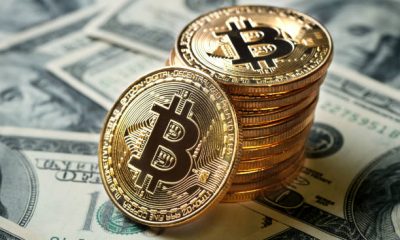
 Blockchain1 week ago
Blockchain1 week agoExtreme Bitcoin Shorts Could Predict A Bottom, Here’s The Significance – Crypto News
-
Business1 week ago
Bitcoin vs. Gold: Expert Predicts BTC’s Underperformance as Options Traders Price in $20K Gold Target – Crypto News
-

 Technology1 week ago
Technology1 week agoDevelopers key architect of AI; India stands at the centre: OpenUK CEO Brock – Crypto News
-

 Blockchain1 week ago
Blockchain1 week agoLogan Paul Sells Controversial Pokémon card For $16.5M – Crypto News
-

 others1 week ago
others1 week agoBudget support and equity-market push – Commerzbank – Crypto News
-
others1 week ago
XRP Price Prediction Ahead of Potential U.S. Government Shutdown Today – Crypto News
-
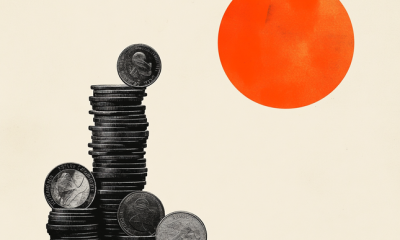
 others1 week ago
others1 week agoSolid growth outlook into 2026 – Standard Chartered – Crypto News
-
Cryptocurrency1 week ago
TRUMP Coin Pumps 5% as Canary Capital Amends ETF Filing With New Details – Crypto News
-

 Cryptocurrency1 week ago
Cryptocurrency1 week agoCrypto Flows to Human Trafficking Services Jump 85% to Hundreds of Millions in 2025 – Crypto News
-
Business1 week ago
Michael Saylor Says Strategy Can Cover Debt Even If Bitcoin Crashes to $8,000 – Crypto News
-

 Metaverse1 week ago
Metaverse1 week agoMaharashtra’s MahaVISTAAR meets Amul’s Sarlaben – Crypto News
-
others1 week ago
Dogecoin, Shiba Inu, Pepe Coin Price Predictions As BTC Crashes Below $68k – Crypto News
-

 Cryptocurrency1 week ago
Cryptocurrency1 week agoPublicly Traded Blockchain Lender Figure Confirms Customer Data Breach – Crypto News
-

 Cryptocurrency1 week ago
Cryptocurrency1 week agoPublicly Traded Blockchain Lender Figure Confirms Customer Data Breach – Crypto News
-

 Technology1 week ago
Technology1 week agoFuture of AI is a governance question, not a technology race: Vilas Dhar of Patrick J McGovern Foundation | Interview – Crypto News
-

 Blockchain1 week ago
Blockchain1 week agoFigure Technology Data Breach Exposes Customer Personal Information – Crypto News
-

 Cryptocurrency1 week ago
Cryptocurrency1 week agoSaylor’s Strategy (MSTR) Stock Rallies 9% Amid Bitcoin Price Rebound – Crypto News
-

 Cryptocurrency1 week ago
Cryptocurrency1 week agoCould XRP slide toward $0.80 next? THESE signals hold the key – Crypto News
-

 Metaverse1 week ago
Metaverse1 week agoIndia will showcase small AI, early startups at Summit starting tomorrow – Crypto News
-

 Technology1 week ago
Technology1 week agoDecoded: AI buzzwords everyone talks about – Crypto News
-
Business1 week ago
Trump-Backed American Bitcoin Reserves Surpass 6,000 BTC, Now Worth $425.82M – Crypto News
-

 Metaverse1 week ago
Metaverse1 week agoMint Primer | Why is there a hype around AI summit in India? – Crypto News
-
Business1 week ago
HOOD and COIN Stock Price Forecast as Expert Predicts Bitcoin Price Crash to $10k – Crypto News
-

 Blockchain1 week ago
Blockchain1 week agoNexo Relaunches Crypto Platform in the United States – Crypto News
-

 Metaverse1 week ago
Metaverse1 week agoQuick commerce showcase to global audience trips on logistics issues – Crypto News
-
others1 week ago
Ethereum Price Outlook as Harvard Shifts Focus from Bitcoin to ETH ETF – Crypto News
-

 others1 week ago
others1 week agoAmazon Handing $309,000,000 To Customers in Settlement Over Alleged Failure To Refund Returned Items – Crypto News
-

 Blockchain1 week ago
Blockchain1 week agoParadigm Challenges Bitcoin Mining Narrative Amid AI Data Center Boom – Crypto News
-
Business1 week ago
Bitcoin Shows Greater Weakness Than Post-LUNA Crash; Is a Crash Below $60K Next? – Crypto News
-

 Metaverse1 week ago
Metaverse1 week agoAM Group challenges tech giants with $25 billion green AI platform – Crypto News
-

 Blockchain1 week ago
Blockchain1 week agoLogan Paul Sells Controversial Pokémon card For $16.5M – Crypto News
-

 Blockchain1 week ago
Blockchain1 week agoLogan Paul Sells Controversial Pokémon card For $16.5M – Crypto News
-

 De-fi1 week ago
De-fi1 week agoOndo Global Markets Taps Chainlink for US Stock Price Feeds – Crypto News
-

 others1 week ago
others1 week agoWhen is the UK employment data and how could it affect GBP/USD? – Crypto News
-
Technology1 week ago
Wintermute Expands Into Tokenized Gold Trading, Forecasts $15B Market in 2026 – Crypto News
-

 others7 days ago
others7 days agoGBP/USD sinks nearly 100 pips as UK jobless rate hits decade high – Crypto News
-

 Technology5 days ago
Technology5 days agoApple Set to Bring Car Keys Function to Toyota Vehicles – Crypto News
-

 Metaverse1 week ago
Metaverse1 week agoAI isn’t taking over IT jobs—it’s changing who gets hired – Crypto News
-
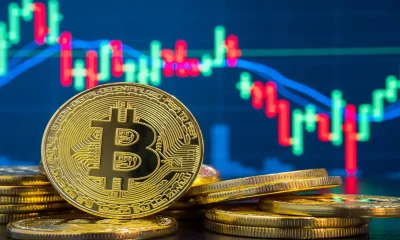
 Cryptocurrency1 week ago
Cryptocurrency1 week agoIs the Bear Market Over? – Crypto News
-
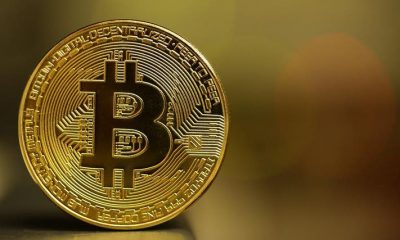
 Blockchain1 week ago
Blockchain1 week agoBitcoin On-Chain Data Indicates High Volatility Ahead Following Post-CPI Reaction – Crypto News
-

 others1 week ago
others1 week agoHackers Hit Android and iPhone Users’ Bank Accounts, Launch Mobile Spyware Platform Triggering Total Device Takeover – Crypto News
-
others1 week ago
Expert Predicts Bitcoin Dip to $49K as ‘Trump Insider’ Whale Dumps 5,000 BTC – Crypto News
-

 others1 week ago
others1 week agoWells Fargo Handing $56,850,000 To Customers After Allegedly Sending Botched Reports To Credit Agencies – Crypto News
-

 Technology1 week ago
Technology1 week agoOpenAI has deleted the word ‘safely’ from its mission – and its new structure is a test for whether AI serves society or shareholders – Crypto News









